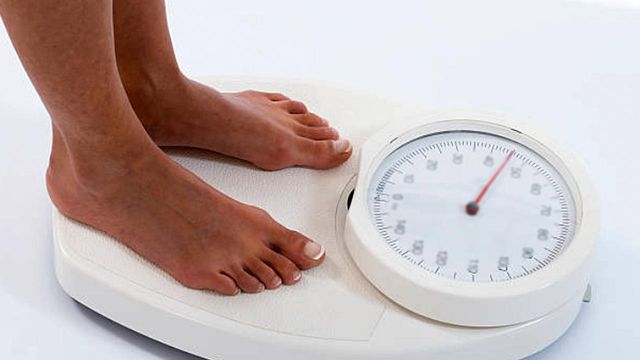A Comprehensive Guide to a Daily Balance Nutrition Plan for Weight Reduction.
Introduction
Many people try to achieve and maintain the desired weight while having a healthy lifestyle. The daily balanced diet tailored for effective weight loss is an important aspect of this effort. This is a guide that not only provides you with key insights but also tips and tricks concerning the process of losing weight.
Understanding daily balanced diet for weight loss:

1. Caloric Deficit: The Key to Weight Loss
This approach primarily relies on a calorie restriction – burning more calories than you ingest. This can be achieved by practicing mindful eating and engaging in routine physical activity.
2. Macro and Micronutrients: Striking the Right Balance
A healthy diet is one that involves adding carbohydrates, proteins and fats in equal ratios with necessary micronutrients such as vitamins and minerals. Finding the right balance will ensure that your body has enough energy for proper functionality.
Planning the Balanced Daily Diet
3. Breakfast: The Foundation of Your Day
Start off your day with a nutrient dense breakfast. Some healthy options are whole grains, lean protein and some fruit to get your metabolism up for the day.
4. Lunch: A Wholesome Midday Boost
By considering lean proteins, vegetables and complex carbohydrates for lunch one will enjoy a nutritious meal. Colouring the plate with a range of colours guarantees diversity in nutrients.
5. Dinner: Keep It Constant and Nutrients-Dense
Have a light, but healthy dinner. Lean protein, leafy greens and a moderate amount of healthy fats. Avoid eating heavy late meals rich in calories.
6. Snacks: Smart Choices Between Meals
Prefer healthy snacks like greek yoghurt, nuts or fresh fruits to help control the urge for a meal. Do not eat high sugar, empty calorie processed snacks.
Hydration: The Unsung Hero

7. Water: Your Weight Loss Ally
Water intake is usually neglected in the weight loss journey. Adequate water intake helps not only general health but also in appetite control. Try to drink at least eight glasses of water a day.
The Role of Exercise
8. Exercise: A Vital Component
Pair your balanced diet with routine physical activities. Use both cardio exercises and strength training activities, which burn the most calories.
Pro tips to achieve the optimal result.
9. Mindful Eating: The Art of Awareness
Practice mindful eating, such connection with each mouthful one eats. Observe portion sizes, savor every bite and listen to your stomach’s satiety cues. This technique helps one develop a healthier relationship with food and therefore avoids overeating.
10. Meal Prepping: Set Yourself Up for Success
Make your travel easier by including meal prepping as part of it. Pre-plan meals, and make sure they match your dietary needs. This is not only time-saving but also minimizes the risk of making hasty and unhealthy food selections.
11. Quality Over Quantity: Opt for Nutrient-Rich Foods
Instead of counting calories, pay attention to the nutrient density. Consume foods that contain high levels of vitamins, minerals and antioxidants. Vegetables, fruits and lean proteins not only help in shedding pounds but also contribute to better health.
12. Sleep Hygiene: The Overlooked Factor
The quality and quantity of sleep have a crucial role in weight regulation. The lack of sleep leads to imbalanced hormones and therefore increase craving as well slow down the metabolism. For best results, practice a regular sleep pattern.
Breaking Down Myths
13. Myth: Extreme Diets Guarantee Quick Results
Despite common belief, extreme diets lead to initial weight loss followed by rebound before normal weight is regained. Pursue long-term, sustainable lifestyle changes rather than short term solutions that provide quick fixes.
14. Myth: Skipping Meals Accelerates Weight Loss
Missing meals impairs your metabolism and invites binging in the latter hours of the day. However, focus on balanced yet regular meals that provide consistent energy levels and support a healthy weight loss.
Science of Weight Loss
15. Insulin Sensitivity: A Key to Fat Loss
Understanding insulin sensitivity is critical for successful weight loss. Low glycemic index foods can assist in regulating blood sugar levels that promote fat loss and prevent insulin resistance.
Crafting a Personalized Plan
16. Consulting a Nutrition Professional
For a personalized weight loss program, you can visit and work with an expert nutritionist. They are able to analyze your needs, preferences and lifestyle in an individualized approach that aligns with the objectives.
Action for Sustainable Change
17. Commitment and Consistency: Your Allies
Weight loss is a slow process that requires patience and endurance. Keep your goals realistic, pinpoint every milestone you pass and observe the big picture of a healthier life.
Incorporate these advanced tips into your daily routine to enhance the effectiveness of your weight loss journey. Remember, every positive choice contributes to your overall well-being, and the journey towards a healthier you is a continuous evolution.
Conclusion
Start the weight loss program with a mind of confidence that is derived from embracing an everyday balanced diet. However, focusing on the proper nutrition balance and adequate hydration as well as incorporating regular physical exercise makes you achieve long-term results. Consistency is very important; make these practices part of your way of life for a permanent change.
FAQs:
1. Q: Will the balanced diet that I follow on a daily basis for weight loss keep me from enjoying my favorite food?
A: Yes, indeed; you can include your favorite ones in a limited amount. The trick is to pay attention not only to portion control but also a well-rounded nutrient balance so that you are meeting your weight loss goals.
2. Q: Is meal timing significant in a daily balanced diet for weight control?
A: The timing of meals does play some role, but it’s more about the total number Consistency of meal timings can help control our energy levels and avoid overeating.
3. Q: Are some foods more effective in helping lose weight than others?
A: There is no one food that will cause weight loss, but including nutrient-rich foods such as fruits; vegetables and lean proteins help the effort. The overall balance is the most important factor.
4. Q: Is it important to follow a balanced diet for weight loss?
A: Although calorie counting may be a good practice, it’s not compulsory. Pay attention to your food type, mindful eating and a caloric deficit combining dietary restriction as well physical activity/exercise.
5. Q: When taking a daily balanced diet for weight loss how soon will you notice the results?
A: The time it takes to get results depends on the individual. Weight loss should be a gradual process. Following a balanced diet and exercise on a regular basis, tend to get visible results in few weeks or months.

